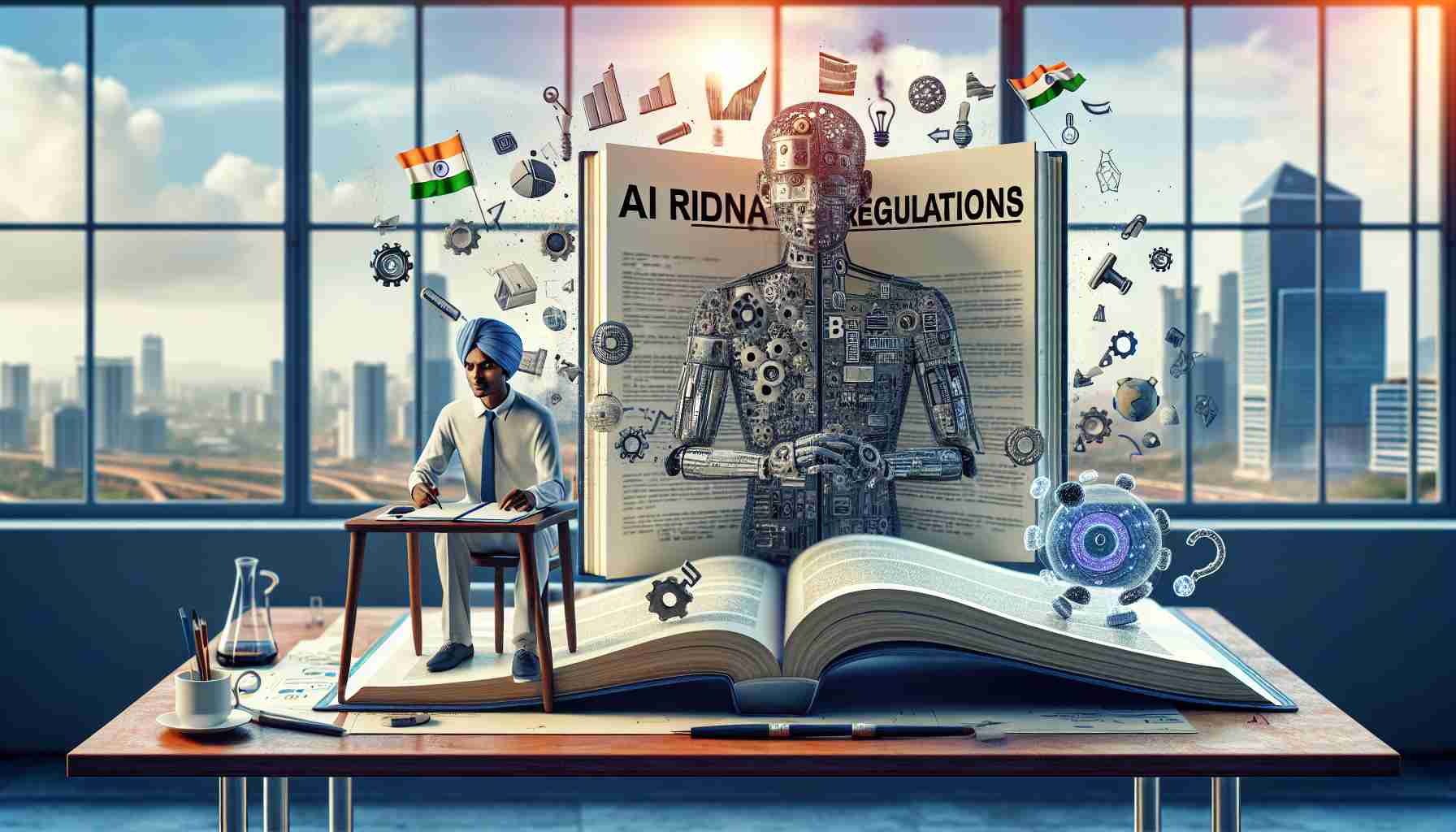India’s government has recently updated its regulations for AI services, signaling a shift towards encouraging innovation rather than burdening startups with approvals. The Ministry of Electronics and Information Technology initially proposed a plan to require government permission for AI services, citing concerns about the reliability and fallibility of AI. However, the ministry has now removed the requirement for approval while introducing certain obligations for AI service providers.
The new regulations highlight the importance of ethical AI practices. Indian AI operations are now required to label deepfakes, prevent bias in AI models, and inform users about the limitations of these models. Additionally, AI providers must refrain from producing and sharing illegal content and inform users about the potential consequences of using AI to create illegal material.
The initial plan to require government approval was met with criticism, particularly from Rajeev Chandrasekhar, the minister of state for entrepreneurship, skill development, electronics, and technology. Chandrasekhar clarified that the requirement only applied to Big Tech companies, aiming to protect and boost Indian startups. This update reflects the Indian government’s commitment to fostering a favorable environment for innovation and technological advancements.
These revised regulations strike a balance between promoting AI development and ensuring responsible use. By implementing obligations related to transparency, fairness, and legal compliance, India aims to establish itself as a leader in ethical AI practices. Startups and established AI service providers will benefit from the clarity provided by these regulations, allowing them to focus on innovation and growth.
FAQ:
What are the new requirements for AI operations in India?
The new requirements include labeling deepfakes, preventing bias in AI models, informing users of model limitations, avoiding production and sharing of illegal content, and informing users about the potential consequences of using AI to create illegal material.
Why did the Indian government revise its AI regulations?
The government revised the regulations to encourage innovation and growth in the AI sector while ensuring ethical practices and legal compliance.
Who does the new regulation apply to?
The new regulations apply to all AI service providers operating in India, including startups and established companies.
What is the government’s stance on AI development in India?
The Indian government is committed to fostering a favorable environment for AI development and positioning India as a leader in ethical AI practices. The revised regulations aim to balance innovation with responsible use of AI technology.
Sources:
– [URL 1: Original Article Title](URL of domain)
India’s AI industry has been witnessing significant growth in recent years. According to a report by Accenture, the AI market in India is projected to reach $9 billion by 2025, with a compound annual growth rate (CAGR) of 45%. The increasing adoption of AI technologies across various sectors such as healthcare, finance, retail, and manufacturing is driving this growth. Accenture
One of the key challenges faced by the Indian AI industry is the lack of skilled professionals. To address this issue, the government is focusing on promoting AI education and skill development programs. The National Institution for Transforming India (NITI Aayog) has launched the National AI Strategy, which aims to train professionals in AI technologies and promote research and development in the field. NITI Aayog
The revised regulations in India also reflect the global trend towards ethical AI practices. Many countries, including the European Union, have been introducing regulations to ensure transparency, accountability, and fairness in AI systems. India’s move in this direction aligns with these international standards, making it an attractive destination for AI businesses looking for a responsible regulatory framework.
However, there are still some concerns regarding the implementation and enforcement of these regulations. It will be crucial for the government to establish clear guidelines and mechanisms to monitor and enforce compliance. Additionally, continuous updates to the regulations may be necessary to keep up with the rapidly evolving AI landscape.
In conclusion, the updated regulations in India underscore the government’s commitment to promoting AI innovation while ensuring responsible and ethical practices. The industry’s growth potential, coupled with supportive government policies, positions India as a key player in the global AI landscape.
Sources:
– [URL 1: Accenture – Artificial Intelligence in India](https://www.accenture.com/in-en/insights/artificial-intelligence/ai-ready-india)
– [URL 2: NITI Aayog – National Artificial Intelligence Strategy](https://niti.gov.in/national-artificial-intelligence-strategy-aims-establish-india-global-leader-ai)
The source of the article is from the blog agogs.sk

